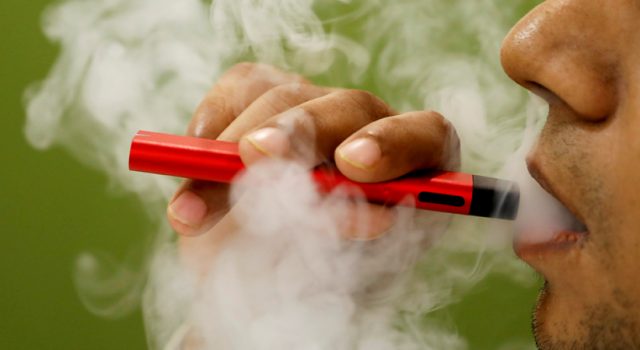Congress approves bicameral committee report on vaping regulation

THE bicameral conference committee report on a bill seeking to regulate vaporized nicotine products was approved by the Senate late Tuesday and by the House of Representatives on Wednesday.
Senate President Pro Tempore Ralph G. Recto, who led the Senate contingent to the bicameral session reconciling the House and Senate versions of the bill, presented the conference committee report harmonizing House Bill 9007 and Senate Bill 2239.
“This bill is meant to regulate Vaporized Nicotine Products, Non -Nicotine Products and Novel Tobacco Products. It is expected to encourage the shift from smoking unhealthy cigarettes to these alternative, less harmful products,” he said during the plenary session.
“This bill was never intended to (encourage people to) adopt a new lifestyle (particularly) minors who are prohibited from having access to these products,” he added.
Separately, the House, sitting in plenary session, approved the bicameral report, according to video of the session streamed on social media.
Under the consolidated measure, the term novel tobacco products, which was adopted from the House version, will refer to “all non-combusted substances in solid or liquid form, and innovations, either made partly of tobacco leaf as raw material or containing nicotine from tobacco intended to be used as a substitute for cigarettes or other combusted tobacco products.”
Thirty days after the effectiveness of the measure when it becomes law, the Health department will be required to issue a template with guidelines on the illustrations, design, and information required to appear on the graphic health warning on the product packaging. This will apply to all such products, whether manufactured in the Philippines or imported and introduced in the domestic market.
A provision adopted from the Senate version bans markings or characters that are likely to appeal to persons under 18 years of age, such as cartoons, personalities, and the like.
A provision that was added at bicameral level bans medicinal or therapeutic claims in marketing materials or packaging unless approved by the Food and Drug Administration.
Violators face a maximum fine of P20,000. If a minor is caught selling, buying, or using such products, the minor will be required to participate in a Social Welfare department in an intervention program, which can include counseling sessions with their guardian.
The maximum fine for manufacturers, distributors or retailers is P400,000, imprisonment of up to three years, or both, if they do not verify the customer’s age or follow the rules on display and product communication restrictions. — Alyssa Nicole O. Tan, Jaspearl Emerald G. Tan



